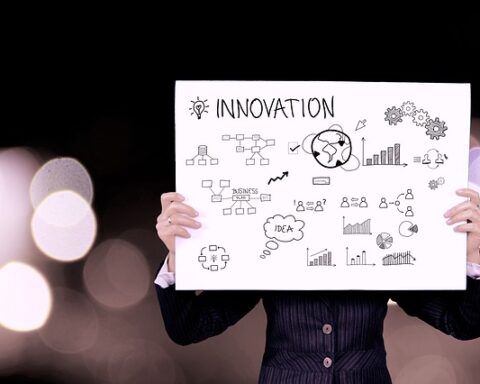In the fast-paced, highly competitive pharmaceutical industry, sales reps must adapt to new ways of engaging with customers and healthcare professionals (HCPs). Two such approaches are through the use of omnichannel and sales enablement technologies, which can revolutionize the way pharmaceutical companies develop their sales force and interact with their stakeholders.
In this article, we’ll explore how to use omnichannel and sales enablement technology to create the biggest impact, and how partnering with an expert in behavior change and sales performance can ensure greater commercial outcomes.
Omnichannel vs. Sales Enablement
Omnichannel is a customer-centric approach that seamlessly integrates multiple communication channels, providing a consistent and unified experience for users. This approach allows pharma companies to engage with their customers through various touchpoints, including digital platforms, face-to-face interactions, and traditional marketing channels. By employing an omnichannel strategy, pharma companies can create a more personalized and effective communication experience, ultimately leading to improved customer satisfaction and loyalty.
Sales enablement technologies are designed to empower sales teams by providing them with the tools, resources, and information they need to be effective in their roles. These technologies aim to streamline and optimize various aspects of the sales process, including lead generation, customer relationship management, content management, training and onboarding, analytics, and collaboration.
Omnichannel and sales enablement technologies encompass a range of tools and platforms designed to support the sales process. They aim to provide sales teams with the resources to effectively engage with customers, learn about and communicate critical product information, develop skills, and access data in order to close more business.
Sales enablement technologies are revolutionizing how business is conducted. This is especially true in pharmaceutical sales, where complex regulations, tightening policies, and evolving pharma-to-physician dynamics present unique challenges for sales leaders and field reps. Let’s explore how using omnichannel and sales enablement technologies can empower sales representatives and their leaders to overcome these hurdles and drive success in an increasingly competitive and complex market
Onboarding and Professional Development Technologies
Having a well-trained and motivated sales team is vital to success. There’s a lot to learn in life sciences sales, and it can often be overwhelming for new hires. Technology, while not intended to replace in-person coaching and continuous feedback, can play a crucial role in onboarding new sales representatives and providing ongoing development opportunities. Technologies such as interactive e-learning platforms, virtual simulations, and mobile applications can be used to provide comprehensive product knowledge, compliance training, and selling techniques. These tools enable your sales team to learn at their own pace, access information in the flow of work, and receive continuous updates on changing regulations and product updates.
CRM Systems
Customer Relationship Management (CRM) systems are invaluable for managing sales processes in the pharmaceutical industry. These platforms enable sales reps to track and manage their interactions with HCPs, track sales opportunities, and maintain a centralized customer information database. CRM systems offer features like contact management, task automation, opportunity tracking, and reporting capabilities, which streamline the sales process and enhance productivity. With access to real-time data and insights, sales leaders can make informed decisions, identify trends, and tailor their strategies to specific customer needs, leading to more effective sales engagements.
Sales Performance Management (SPM) Tools
While certain features may overlap between CRM systems and SPM tools, the primary distinction lies in their respective focuses and objectives. CRM systems concentrate on managing customer relationships, while SPM tools are dedicated to optimizing sales team performance and driving sales effectiveness. Both systems play crucial roles in sales management, and organizations often use them in tandem to achieve their sales goals. SPM tools provide insights and analytics to track and improve sales performance. They enable sales leaders to set targets, monitor individual and team performance, and provide coaching and feedback. SPM tools help identify areas of improvement, recognize high-performing sales representatives, and optimize sales strategies.
Teleconferencing (Video Conferencing Tools)
The landscape of pharma sales has undergone significant changes in recent years, leading to a shift in the dynamics between sales reps and HCPs. This transformation has reshaped the traditional in-person approach to sales and detailing.
Video conferencing technologies allow sales reps to conduct virtual sales meetings according to the preferences of the HCP, thereby enhancing but not replacing traditional face-to-face interactions. Additionally, virtual meeting tools eliminate geographical barriers, reduce travel costs, and enable sales reps to connect with a broader range of healthcare professionals. It also facilitates seamless collaboration within sales teams and encourages efficient knowledge sharing, ensuring that all reps are well-informed and can leverage each other’s expertise.
Artificial Intelligence (AI)
Artificial Intelligence (AI) has revolutionized various industries, and pharmaceutical sales can also benefit from its capabilities. AI-powered tools can analyze vast amounts of data, such as customer preferences, historical sales data, and market trends, to provide actionable insights. By leveraging AI, sales leaders can identify the most promising leads, personalize sales pitches, and optimize their approach based on individual customer profiles. Additionally, AI-powered chatbots can also assist in handling routine inquiries and provide 24/7 support, ensuring timely and accurate customer responses. AI augments the sales process, allowing representatives to focus on building relationships and closing deals.
Data Management and Data Analytics Tools
According to research from MIT, 80% to 90% of the data businesses accumulate is unusable or not being used to its full potential because it’s unstructured. Unstructured data refers to any data that does not have a predefined structure or organization. Unlike structured data, which is typically organized in a specific format, such as rows and columns in a database, unstructured data lacks a consistent schema or predefined arrangement. Companies that invest in figuring out how to access, interpret, and utilize data from unstructured sources can have a significant competitive advantage.
Data management and analytics tools help sales leaders gain valuable insights into customer behavior, market trends, and product performance. These insights can help identify potential market opportunities, target the right customers, and tailor marketing and sales strategies. Sales teams can also track key performance indicators (KPIs), measure the effectiveness of their campaigns, and refine their approaches. By making data-driven decisions, sales leaders can optimize their sales processes, improve customer engagement, and drive revenue growth.
Mobile Applications
Through mobile apps, pharmaceutical companies can engage with their target audience effectively and provide them with seamless access to products, exclusive promotions, and a personalized journey, thereby enhancing customer satisfaction and fostering brand loyalty. In addition, mobile apps designed specifically for sales enablement provide access to critical sales resources on the go. These apps may include features like real-time updates, product information, sales scripts, and customer data. Sales representatives can access information instantly, even while in the field, enabling them to deliver relevant and accurate information to customers.
How to Operationalize Your Technology for the Biggest Impact
Technology can be a significant investment, and you want to maximize it. Operationalizing technology simply means effectively using it to get work done and encourage the behaviors that create the biggest impact.
To operationalize technology, follow a strategic approach:
- Clearly define the objectives and identify the specific technologies that align with those goals.
- Consider the needs of the sales team and the challenges they face, and identify areas where technology can provide the most impact.
- Provide training and onboarding to ensure sales reps have the necessary knowledge and skills to utilize the technology effectively.
- Integrate your technology into existing sales processes for a seamless adoption.
- Align technology with sales workflows, integrate systems where possible, and ensure data consistency across platforms.
- Regularly monitor and evaluate the technology’s effectiveness to identify areas for improvement and make necessary adjustments.
By taking these steps, organizations can leverage the full potential of their technologies to drive better sales results.
Partner with a Behavior Change and Sales Performance Expert for Even Greater Results
There’s no better way to augment your omnichannel strategy and sales enablement capabilities than to partner with an expert in behavior change and sales performance. These experts help pharma companies better understand their customers’ needs and preferences, and improve the performance of their sales teams, systems, and processes in order to drive sustained sales improvements.
Conclusion
Staying ahead of the curve is essential in a competitive pharmaceutical sales environment. By adopting omnichannel and sales enablement technologies and partnering with sales performance experts to help operationalize them, sales leaders can empower their teams, streamline processes, build stronger relationships, manage contacts effectively, follow up efficiently, and ultimately sell more, driving the growth and success of their pharmaceutical sales endeavors.
Author Bio:
Dan Snyder is a seasoned sales and business leader with a rich background in the pharmaceutical/biotech industry. Currently serving as the Senior VP of Sales for Performance Development Group (PDG), Dan has held leadership roles at Astra USA, Diachii Sankyo, Shire, Nitromed, Clarus Therapeutics, Syneos Health, and Delta Point. Adept at overcoming challenges, Dan is known for his passion for sales, commitment to coaching excellence, building high-performing teams, and ability to achieve outstanding results.







